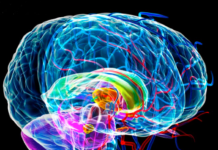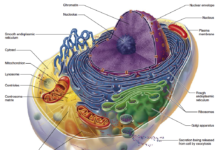 Transcript: Jim English on Nightline with Barbara Walters, January 17, 1992
Transcript: Jim English on Nightline with Barbara Walters, January 17, 1992
This is ABC News Nightline. Substituting for Ted Koppel and reporting from New York, Barbara Walters.
Barbara Walters: You could say that it all started with Ponce de Leon. The Spanish explorer came to Florida in 1513, searching for the “Fountain of Youth”. Well, he never found it, but that hasn’t stopped Americans in their quest for eternal health. Over the years, the quest has taken the form of health foods, macrobiotic diets and Jane Fonda videos. Now, thousands have taken it a step further.
This time, instead of trying to improve their bodies, they’re trying to improve their minds. The secret? So-called “smart” drugs and nutrients. If their supporters are to be believed, using smart drugs will stimulate the brain, making you sharper, and improving your creativity and memory. Tonight, we’ll look into questions about smart drugs. Just what are they?
When we come back, we’ll talk with the owner of a company that sells smart nutrients, with a researcher who has found that smart drugs can improve a person’s memory, and with the chief of the Alzheimer’s unit at the National Institute of Mental Health, who feels that supporters of smart drugs are giving false hope to the families of Alzheimer’s patients.
Walters: Joining us from our San Francisco bureau is Jim English, the owner of “Smart Products,” a company that sells smart drinks, and from our New York studios, Dr Elias Tsambis, a psychiatrist and the medical director of the New York Institute of Research, from our Washington studio, Dr Trey Sunderland, chief of the Alzheimer’s unit at the National Institute of Mental Health. Mr English, let’s start with you. You not only sell smart drugs and smart drinks, you take them yourself, right?
English: Well, we have a company that sells smart products, nutrient drinks –
Walters: But you also take them. Yeah, but you take –
English: I use the nutrient drinks and I also use some of the pharmaceuticals.
Walters: Okay. How many and what kind of these nutrients and drinks do you take, and what do you think it does for you?
English: Well, primarily, there are about four nutrient drinks that I take on a regular basis, every day. These drinks contain nutrients such as choline, amino acids such as L – phenylalanine and arginine. Primarily they’re vitamin-based . . . [crosstalk].
Walters: Now, are those – can you buy those over the counter, anyone can get those?
English: Yes, you can.
Walters: Right. Okay.
English: Yes. They are basically a food substances – they’re nutrients.
Walters: All right. And do you think that you feel different? Do you think that you remember things –
English: Absolutely.
Walters: What’s the difference?
English: It’s a very profound, yet subtle difference. When I started using these on a regular basis, about nine months ago, I was rather stunned, because they had a very immediate effect, though not like a drug. The feeling is similar to waking up with a sense of clarity. I feel an increased ability to focus on projects and accomplish things throughout the day.
Walters: Dr Tsambis, what do you think of what Mr English is saying? You’ve had studies on this. What’s your view?
Dr. Elias Tsambis, New York Institute of Research: Well, I think just taking something without proper assessment may really deprive an individual of some underlying problem which is potentially correctable, like a sluggish thyroid or a vitamin deficiency like folic acid or B – 12. I think assessment first and then treatment.
Walters: But if, let’s say, the person is healthy, you don’t have a specific problem and you’re feeling pretty good, do you think that one should take these so – called smart drinks and that it will improve memory, focus?
Tsambis: I think that probably you’d have to really get some data that at least they’re not harmful.
Walters: Well, do you think they’re harmful?
Tsambis: I think potentially taking anything to excess can be harmful. That’s even true with vitamins.
Walters: Okay. But if they’re not harmful, do you think that they can therefore do some good?
Tsambis: I think potentially that there are substances that he talks about which could be of tremendous benefit, but it has to be validated.
Walters: But by going to a doctor or somebody who knows about it?
Tsambis: Through research.
Walters: Okay.
Tsambis: I think through good clinical research, validating the efficacy of these substances.
Walters: Okay. So you say maybe sometime in the future, not quite yet.
Tsambis: Right.
Walters: Okay. Dr Sunderland, how do you feel about all of this? Thousands of people taking this, Mr English saying he’s feeling much better. You treat Alzheimer’s patients. You treat people to whom memory would be so important.
Dr. Trey Sunderland, National Institute of Mental Health: Well, the problem is that people talk about smart drugs for memory, but we’re really talking about normal people who have normal memories that want to take these medicines. When I deal with Alzheimer’s patients, they have severe memory deficits, and the drugs that I use may be helpful, but the fact they’re helpful in Alzheimer patients who have diseased brains does not mean they’ll help you and I who have normal brains.
Walters: How do you know? Maybe it’s like chicken soup. Couldn’t help, but it might not hurt. What harm does it do to take them?
Sunderland: It might not, but there are risks associated with all medications that you take. Now, the smart nutrients, for instance, I don’t know what all of these concoctions are, but I do know they’ve never been tested in double – blind, placebo – controlled ways, and they might just be having a sugar – pill effect.
Walters: But if you – are there drugs, for example, that you now find, or nutrients, that do help Alzheimer patients?
Sunderland: Yes. There’s a medicine we’ve been using for a number of years called Deprenyl, which has recently been given to Parkinson patients, and we’ve shown over the last number of years that it might help in short – term memory with Alzheimer patients. And there are numerous other medicines where you might find some small benefit. But we have no idea what this’ll do in the long term, and we have no idea what it’ll do with normal memory.
Walters: Has it been tried on normal people?
Sunderland: Not yet. Not that I’m aware of, no.
Walters: What about nutrients? You know, there was a time, for example, when doctors said – and many still do – “Look, you eat a well-balanced diet, you don’t have to take any vitamins”.
Sunderland: Sure.
Walters: Now we are learning that this vitamin or that vitamin might help prevent cancer, might help this – wouldn’t it perhaps be the same thing, taking one of the smart drinks that Mr English is talking about?
Sunderland: Well, the problem is no one takes just one pill. The average person over 65 takes from five to seven medicines a day, and the people that are talking and advocating for smart drugs are not saying take one. Listen to what Mr English said or what Mr Morgenthaler said in the piece before. He was talking about Hydergine, he was talking about Deprenyl, he was talking about Dilantin, three, four, five medicines. That’s what we call in medicine polypharmacy. We have no way of knowing how these drugs interact, and they could interact dangerously.
Walters: Mr English, you hear this.
English: Yes.
Walters: Does this worry you?
English: No, I agree with Dr Sunderland on that level. Nobody is advocating that people go out and start taking drugs without any sort of study or any sort of supervision by a doctor.
Walters: But, wait a second. People who come into your shop, right, can just buy –
English: People come into a store or they come into a bar –
Walters: – yeah, they can buy whatever they want. They can go into one of these bars, I mean, they’re not taking drugs like LSD, but –
English: – well, we’re talking about –
Walters: – they can say, “Hey, give me one of these smart drinks,” gobble, gobble, gobble.
English: Well, you have to understand these drinks are based on essential nutrients, such as the amino acids I mentioned before – these are what your body is built of. The problem is that as we age the body has a harder time breaking down food, even with a balanced diet, to make nutrients, such as amino acids, biologically available. That’s just part of the aging process.
Walters: Well, Dr Tsambis, what about just taking nutrients? What about – you know, let’s say we have a whole, you know, like McDonald’s, all over the country we’re going to have smart drinks. Is there anything wrong with taking these?
Tsambis: Again, Barbara, I think you have to do it with caution. I mean, there are nutrients, like tryptophan, which is an amino acid, which has some side effects. There’s the fatty – the vitamins that are – A, D – A and D, taking too much of that could be potentially harmful. Too much of vitamin B – 6 can cause nervous conditions. I think all of it has to kind of be done in a way that the public is aware, and also has the education to know what to take and how much to take.
Sunderland: There’s no evidence, for instance, that any of these nutrients, when taken in great excess, will actually cause an improvement in memory. They will definitely cost a lot of money, and there is a placebo effect associated with it possibly, but there’s no good scientific data to support the fact that they’re actually improving their memories.
English: May I say something about the placebo –
Walters: Yes, can we wait just a moment, and we’ll have a little more time? Let’s stop now, we’ll collect our thoughts, and we’ll continue our discussion in a moment. [US smart drug users [estimated]: 1980, 0; 1985, 40,000; 1992, 100,000]
[ COMMERCIAL BREAK ]
Walters: We’re continuing our discussion on so – called smart drugs or smart drinks with a man who sells them and takes them, with a psychiatrist and with a doctor who is head of the Alzheimer’s unit at NIMH. Mr English, just before we paused, you said, well, the placebo effect, that is, if you take these and you think you feel good or smarter or keener, maybe that’s enough. What did you want to say about it?
English: I basically wanted to say that I’ve heard this charge used several times, that this is nothing more than a placebo effect. I wanted to point out that if you’ve had any experience with alcohol or nicotine or caffeine, for that matter, it’s very hard to have somebody tell you it’s purely a placebo effect once you’ve had one of these drinks. When I first had the first drink, say a year ago, I didn’t expect anything, and I was actually stunned, because, for the first time I’d experienced a change, and it was very noticeable.
Walters: How long did it take?
English: Oh, maybe about 20, 30 minutes. But the hundreds of thousands of people who are using these and various products like this – and this is very much a Middle American sort of phenomenon, people are using these things all over the country – these are people who do not easily fall into the placebo argument. They’re not easily fooled. And as far as the price, when you go into a smart bar, and smart bars are spreading all over the country right now, people are going because they want to have a choice, to have something other than a depressant like alcohol. I think people want to have a choice to take something which might make them feel alert and bright , in terms of being able to focus on, and enjoy the moment. It’s very different from drugs, which many people use to avoid pain or get away from reality. These formulas help you embrace reality.
Walters: Okay. Dr Sunderland, you deal with Alzheimer’s patients, and you admit that there are certain drugs that might help them, maybe there are certain drugs that help people with other particular problems. But what about this? Is this a rip – off or is, as Mr English says, maybe it does help?
Sunderland: You know, I just want to pick up on what Mr English did say. If someone goes into a bar and has a drink of nutrients instead of a drink of alcohol, that’s probably of benefit, because you’re replacing what is a central nervous system depressant and obviously a toxin to the brain with something that may have no effect. So clearly, the net gain is positive there. So if people would do this instead of drinking, they’d probably do better. But that’s – the same is true with a cup of coffee versus a drink. I don’t know that there’s anything special about this particular concoction of nutrients that makes them better.
Walters: Is it a ripoff? Are we giving people false hope?
Sunderland: I don’t know, ’cause it’s never been tested, so I really can’t answer that question, but I do want to clarify one thing. There’s a big difference in my mind, at least, between nutrients and between – and drugs, and there – I think we’re confusing the two issues, and they’re not really the same thing. Drugs have possible side effects, many more, perhaps, than the nutrients, and they’re potentially more dangerous when used in combination. And we really haven’t addressed that yet.
Walters: What’s a nutrient?
Sunderland: A nutrient is something that the body needs for its growth and metabolism.
Walters: Not a vitamin, but it’s like a vitamin.
Sunderland: It’s like a vitamin, yes.
Walters: Okay. All right. And that’s healthy, so if somebody wants to have a nutrient drink or a vitamin drink –
Sunderland: Right.
Walters: – you have no objection to that. It’s the drugs that worry you.
Sunderland: Probably – I don’t know what happens when you put a lot of excessive nutrients together in one drink.
Walters: Right. Right.
Sunderland: But they’re probably – alone, they’re not so terrible.
Walters: Okay. And what you’re saying is a drug that may help somebody with Alzheimer’s or that may even help someone who has dyslexia, or if we find that is not necessarily going to be good for someone with a healthy mind.
Sunderland: Absolutely. And also, the issue of liability, when someone takes a drug from a doctor, the doctor is responsible for that medicine. I don’t know who’s responsible when you get them through a mail order. I mean, who takes responsibility if there are problems?
English: I think the individual’s got to take responsibility for that.
Walters: Just let me talk to Dr Tsambis for a moment. Doctor, you heard all of this. Do you think that this is something that we’re really going to have in our future? You are testing this now.
Tsambis: Well, I think there’s – there are a lot of potential compounds which do have an enhancing effect on cognition and memory. How long would these compounds, you know, maintain that effect needs to be studied further. There are several compounds that I’ve worked with, one of them being an extract from a plant, the Gingko tree, that seems to have some beneficial effect.
Walters: So if someone goes out and buys a Gingko nutrient, that’s okay, maybe?
Tsambis: We’re studying it. And I think that’s the important part, that people need to know that if they are going to take something in our research center, that it is to validate the efficacy of the substance, and we’re not promoting that it actually does have beneficial effects.
Walters: So how do you feel about these bars that serve the so – called smart drinks or the smart drugs or the smart nutrients?
Tsambis: I think as long as they’re not harmful, that it’s fine, but I think to mislead a group of people that potentially could go to a physician and be properly worked up and, you know, something done about a particular disorder, I think that’s kind of negligent.
Walters: Okay. Mr English, we just have a moment or two left. Nobody’s changed your mind, I guess, you’re going to go home now and have a nice healthy – or nice unhealthy – nutrient drink?
English: Absolutely. Every night.
Walters: Every night.
English: Every morning, for that matter.
Walters: Well –
English: Well, I’ve integrated these into my life on a daily basis, and I choose to use them for specific reasons.
Walters: Thank you. Gentlemen, we’ll have to stop at this point on a subject that is fascinating and certainly controversial. We’ll be back in a moment with a program note.
[ COMMERCIAL BREAK ]
Walters: Sunday, on This Week with David Brinkley, the economy, unemployment and the ’92 election. That’s our report for tonight. I’m Barbara Walters in New York. For all of us here at ABC News, have a good weekend and good night.
[ END OF SHOW]













